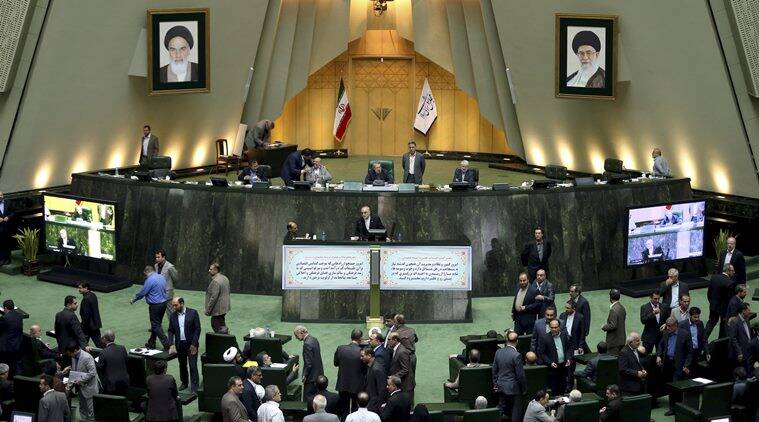(Bloomberg) –Talks on reviving the Iran nuclear deal that have resumed in Vienna show some progress but it’s “far too slow,” a U.S. official said Tuesday.

“Iran has at best been dragging its feet in the talks while accelerating its nuclear escalation,” State Department spokesman Ned Price said in a press briefing. “We have been very clear that that won’t work.”
If Iran continues at that pace, it will be too late to restore the 2015 nuclear accord between Iran and world powers known as the Joint Comprehensive Plan of Action, he said.
Diplomats reconvened Monday in the Austrian capital for an eighth round of negotiations meant to limit the Persian Gulf country’s nuclear activities in exchange for relief from U.S. sanctions.
Deep divisions continue to plague the European Union-brokered talks, forcing diplomats to contemplate outcomes that fall short of fully reviving the landmark 2015 accord, according to officials with knowledge of the discussions.
The new round of talks in Vienna could leave the accord neither quite alive nor categorically dead.
While there’s no formal discussion of an interim deal, even leaving the accord in a state of limbo would require an implicit understanding among all sides not to escalate further. Iran took a big step in that direction when it said on Dec. 25 that it wouldn’t exceed 60% enrichment of uranium.
“The most important issue for us is to reach a point where Iran can sell its oil comfortably and without any restrictions and receive its money in foreign currency in its own bank accounts,” Iran’s Foreign Minister Hossein Amirabdollahian said Monday, according to the semi-official ISNA news agency. “We should be able to fully reap the nuclear deal’s economic benefits.”
But European and U.S. diplomats are increasingly skeptical they can offer the kind of sanctions relief Iran demands. The Islamic Republic has continued to dramatically increase its nuclear activities in the wake of the U.S. decision to unilaterally exit the accord almost four years ago.
That’s resulted in a dwindling time horizon for diplomacy to prevent Iran from marshaling the resources necessary to build a nuclear weapon.
Following the last diplomatic round that adjourned Dec. 17, one European official, who asked not to be identified in return for discussing the talks, said the window of opportunity had shrunk to a matter of weeks.
Even some of Iran’s primary advocates in the talks, which include China and Russia, suggest the newest round might have just a month to succeed.
Iran says it has no intention of building warheads but concerns that it might covertly try to do so drove the international diplomatic effort that culminated in the 2015 accord. Energy markets have been closely watching the talks for signs of whether Iran, the holder of the world’s No. 2 gas and No. 4 oil reserves, might return to global markets.
Two Iranian envoys familiar with the talks, who also asked not to be identified in line with diplomatic rules, rejected European and U.S. ultimatums limiting the time for diplomacy.
While one official said Iran’s ready to negotiate as long as necessary to strike a deal, the other suggested the country is looking at fall-back options in case the Vienna talks collapse.
Former U.S. intelligence officials wrote this month that the Biden administration should threaten to attack Iran’s nuclear infrastructure unless it acquiesces.
Israel has similarly suggested it could bomb Iranian positions to prevent the country from manufacturing a nuclear weapon.
Tehran’s top nuclear official, Mohammad Eslami, signaled in a Dec. 25 interview with Russia’s RIA Novosti that his engineers won’t exceed levels of uranium enrichment required to make a nuclear weapon.
That could send a key message for diplomats trying to extend the possibility for a peaceful resolution.
“There needs to be an understanding that Iran won’t increase their enrichment even further,” said Tariq Rauf, the former nonproliferation policy chief at the International Atomic Energy Agency. “The Gulf states don’t want an attack on Iran because they know they will suffer as well.
A military conflict in Iran wouldn’t be cost-free for the region.”




